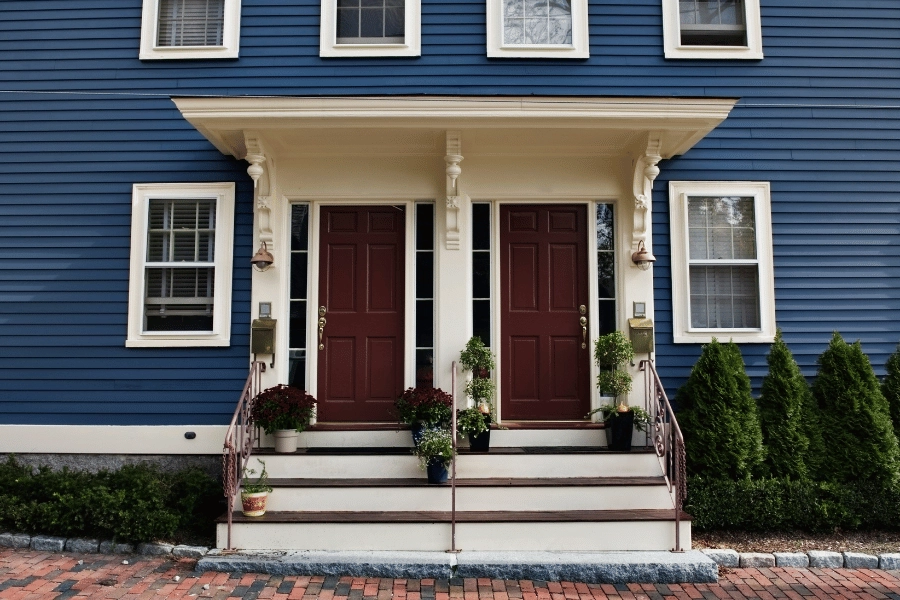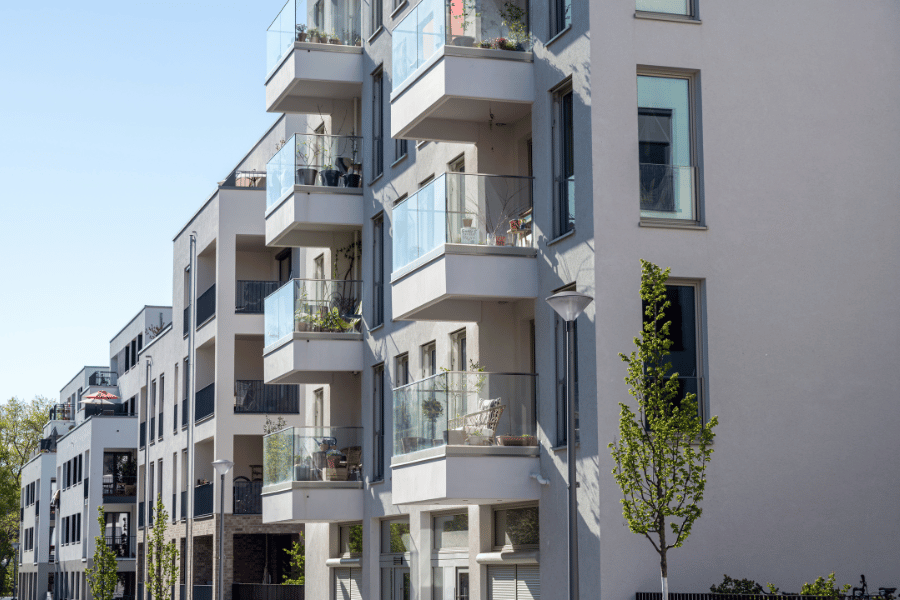What is a Multi-Family Home?
Are you interested in purchasing a multi-family home? Before buying one, here is what you need to know about multi-family homes and what makes them unique.
A multi-family home, also known as a multi-dwelling residential unit, is a residential property divided into more than one separate living unit. Accommodating more than one family in one single building, multi-family homes are a popular real estate type that allows for more than one family to live separately within a single structure.
Multi-family homes are a great investment opportunity since owners can rent out unoccupied individual units and generate a steady stream of additional income. They are also an excellent option for friends or family members who want to live together but still want privacy and separate living areas.
Whether you are a real estate investor or simply looking for a new type of residential unit to call home, these unique properties offer various benefits and challenges to property owners. Most popular in urban areas and large city centers, cities like Raleigh have a fair share of multi-family homes for sale.
If you are considering purchasing and moving into a multi-family home, here is everything you need to know. Keep reading to learn more about multi-family homes, the pros and cons of owning one, and the different types of multi-family homes available on the real estate market.
This is what you need to know about multi-family homes
1. Single-Family Home vs. Multi-Family Home
The most significant difference between a single-family home and a multi-family home is that a single-family home is a standalone property designed to accommodate one family. In contrast, a multi-family home has multiple units for multiple families. Single-family homes are also considered residential properties, and multi-family homes can be residential or commercial, depending on their use.
Whether you purchase a single or multi-family home will depend on your lifestyle, investment goals, overall preferences, and how long you plan to live in one area. Here are the main differences that set a single-family home and a multi-family home apart:
Single-Family Homes
Single-family homes generally offer more privacy to their owners and overall independence from neighboring properties. Depending on the location, single-family homes might provide more space and larger lot sizes compared to multi-family homes. In 2022, the average lot size for a new single-family home in the United States was 8,456 square feet or one-fifth of an acre. Unfortunately, lot sizes continue to decrease over time, but since most multi-family homes are in larger cities, lots tend to be smaller anyway.
Owned by only one individual or family, single-family homes are generally easier to manage and require less maintenance. They attract larger families interested in staying in the house for a longer period, tend to appreciate in value over time, and are generally easier to sell since they attract both buyers and investors.
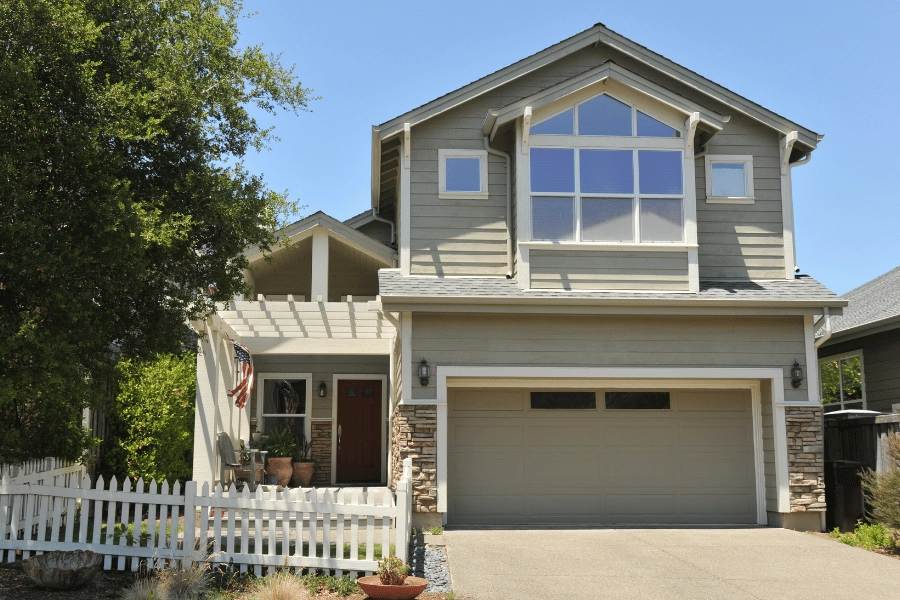
Multi-Family Homes
Multi-family homes can either be owned by one individual landlord or a group of owners, and they tend to be more expensive than single-family homes due to increased maintenance needs and utilities. Generally known for having higher upfront costs, multi-family homes with four or fewer units are considered residential properties, while homes with more than five units are commercial properties, which can affect zoning and financing for buyers.
Unlike single-family homes, which appreciate over time, multi-family homes provide higher returns on investment. They can offer predictable cash flow if units are rented to other families or individuals. Often known for having higher turnover rates than single-family homes, most people who want to live in a multi-family home are young professionals starting their careers and multigenerational families.
Depending on the location, some multi-family homes feature shared amenities such as pools or fitness centers. However, due to the higher upfront costs and smaller buyer pool, these homes can be difficult to sell most of the time. Due to a supply and demand imbalance, multi-family home demand is increasing in some markets and decreasing in others.
2. Different Types of Multi-Family Homes
The multi-family home market is diverse and varies by region across the country, making them an attractive option for large families and investors. Since a multi-family home is a residential property that multiple households can occupy, there is more than one type of multi-family home on the market to choose from.
It is essential to know the different types of multi-family housing and what makes them unique, from smaller units to larger complexes. The larger the complex, the harder it will be to manage.
Duplex
A duplex is one of the most popular multi-family housing options, offering two separate living units attached together. The units within the home are either side by side or stacked on top of each other like apartments. If the units are stacked on top of each other, the two floors are connected either by an indoor or outdoor staircase to reach the upstairs unit.
Each unit will have its own entrance, and depending on the house layout, they may have separate garages and walls. Most of the time, the layout of each unit will be identical, and there will always be a shared wall that separates the two units. If there is an internal staircase, in most cases, it will be located where the shared wall is.
Many duplexes have one owner who lives in one half and rents out the other. If each unit within the duplex has the same street number, the two will be labeled separately, such as A or B.
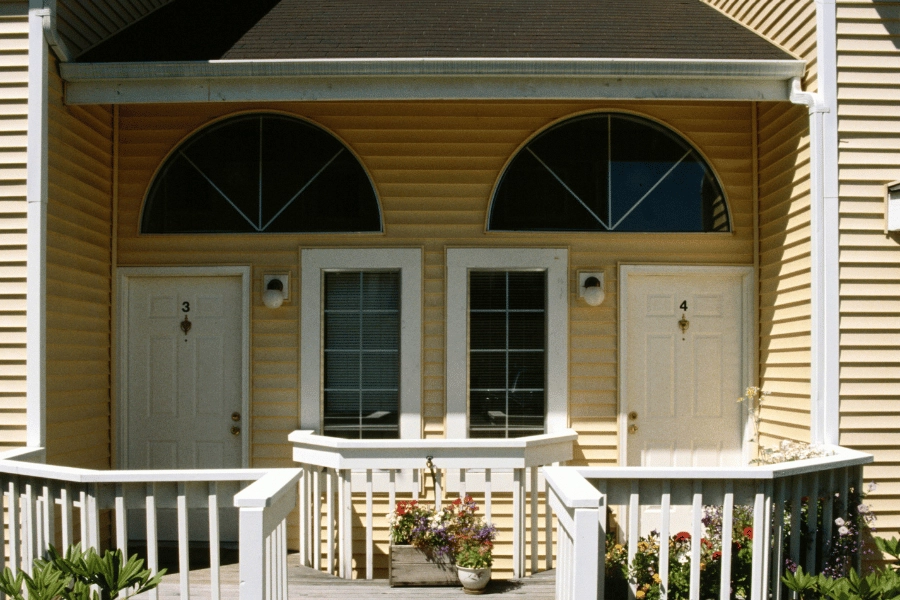
Triplex
A triplex is a residential building divided into three separate units. Similar to a duplex, a triplex is one single structure with one or two common walls shared between each unit. Each unit has its own bedrooms, bathrooms, kitchen, living room, and exterior doors. Typically sold as a single structure, most owners live in one unit and rent out the other two to help pay their mortgage.
Some triplexes were built as triplexes, but others may have started as single-family homes before being split into three independent units. Due to their extra space, triplex homes are generally larger and more expensive than duplexes.
Fourplex
A fourplex is a multi-family home type that contains four separate living spaces. Each unit is located under one roof and has its own entrance and interior spaces. Also referred to as a quadplex, a fourplex is an excellent option for real estate investors since it allows for up to four rental income streams.
Often found in residential neighborhoods zoned for multi-family housing, living in a fourplex is more affordable than buying a single-family home and provides more privacy than a traditional apartment.
3. The Pros and Cons of a Multi-Family Home
Multi-family homes can be a great investment and have many pros and cons. They are definitely worth the purchase if you want to generate regular, passive income or are looking for a great place to live with friends or family. Although they are usually more expensive to buy than a single-family home, their many benefits might make purchasing one a smart choice.
Here are the pros and cons of multi-family homes as an investor:
| Multi-Family Home Pros as an Investor | Multi-Family Home Cons as an Investor |
| Great opportunity for passive income from multiple rental units | Generally more expensive than single-family homes |
| High occupancy rates in large cities and popular locations | Requires more capital upfront than other investment types |
| Increase in value over time | Larger monthly mortgage payments |
| Helps scale a real estate profile quickly | Property taxes and insurance rates can be high |
| Opportunity for tax benefits | Managing multiple units can be challenging |
Here are the pros and cons of a multi-family home as a resident:
| Multi-Family Home Pros as a Resident | Multi-Family Home Cons as a Resident |
| Lower living costs and shared utilities | Lack of privacy due to shared walls |
| Maintenance issues can be addressed promptly | High noise levels can be disruptive |
| Strong sense of community | Smaller, individual units compared to single-family homes |
| Often located in convenient locations | Shared amenities and common spaces |
| Owner-occupied properties qualify for better financing terms | Potential for conflicts and disputes between neighbors |
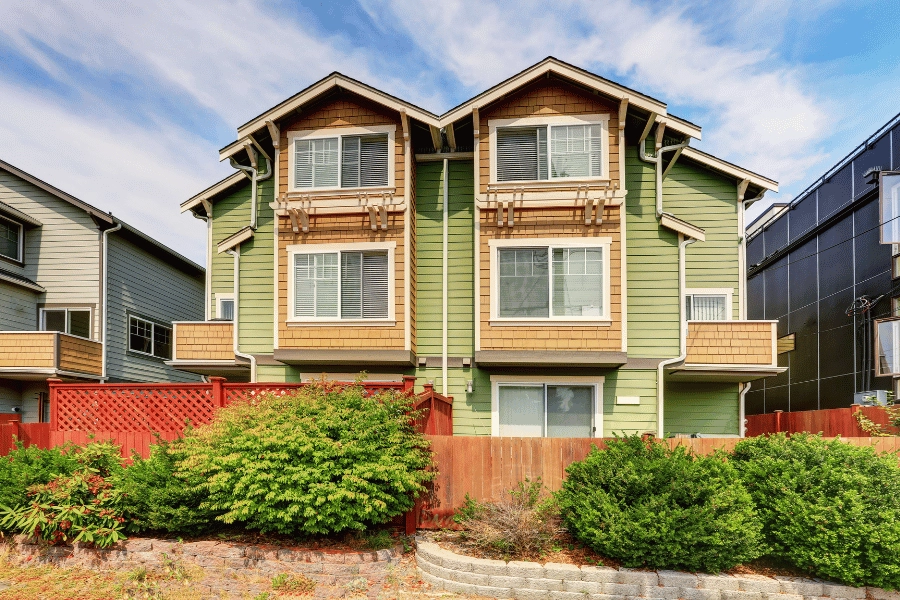
4. What to Look For When Buying a Multi-Family Home
If you have decided that a multi-family home is right for you, there are certain things to consider before purchasing one. Always look for a multi-family home found in a good location. Most popular in urban areas, find a multi-family home with easy access to top amenities, public transportation, a good school district, low crime rates, and neighborhood walkability.
Pay attention to current market trends, especially if you want to invest and rent out one or more units. Look at competition in the area and rental prices in the surrounding neighborhoods. Consider the physical condition of the property and whether or not it will require much maintenance and repairs before moving in. Make sure to check its structural integrity, plumbing, and electrical systems. Older multi-family homes might need renovations before being rented out and lived in.
When buying a multi-family home, it is also important to consider financing options. Some lenders consider multi-family homes low-risk investments due to their potential to generate monthly income. A multi-family home buyer who decides to live on the property for their loan term tends to receive better financing terms than those who do not since they are more expensive properties.
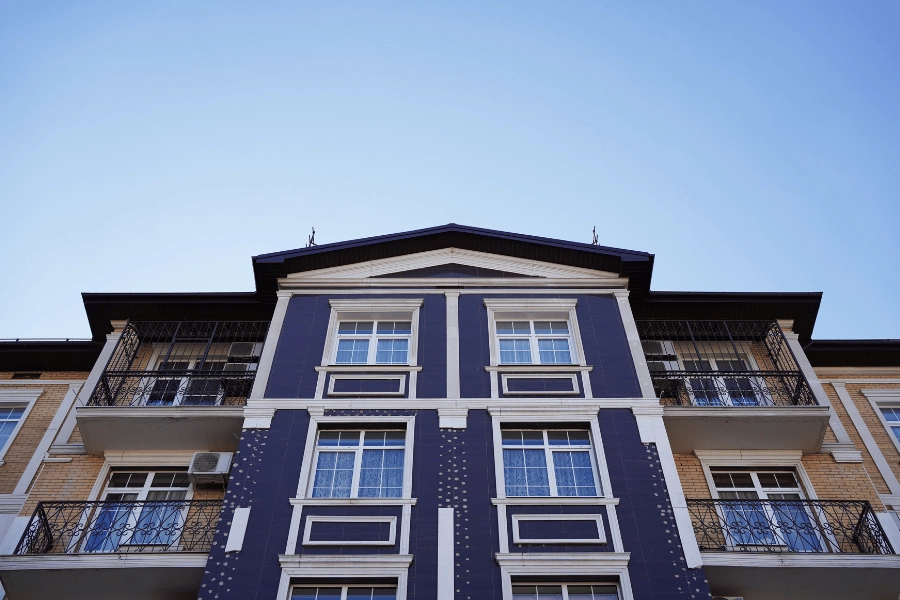
FAQs
Is it worth buying a multi-family home?
Purchasing a multi-family home can be worth it if you want a long-term investment or an extra income source by renting out one or more units.
Are multi-family homes more expensive?
Multi-family homes are generally more expensive since they tend to be larger properties with more complex features than single-family homes. They typically require a more significant upfront investment, and due to the increased number of units and shared spaces, there tend to be higher maintenance costs.
Which state has the most multi-family homes?
New York has the country's highest number of multi-family homes, with 52.7% of homes considered multi-family. Due to housing affordability and demand, urban areas tend to have a higher number of multi-family homes than suburban areas.
Methodology
Data and information were sourced from The Library of Congress, Rocket Mortgage, Construction Coverage, Forbes, and Angi to learn more about multi-family homes.
Multi-Family Homes - Final Thoughts
Multi-family homes can be an excellent investment and living opportunity for residents. From duplexes to fourplexes, there are many types of multi-family homes available, and deciding which type to purchase will depend on your investment goals and living needs. Similar to single-family homes, multi-family homes have their fair share of pros and cons, but even with their cons, they remain a great property choice for many people.
Raleigh's homes for sale include multi-family homes, which can be found throughout the city. Located in safe neighborhoods that are great for families and young professionals, the demand for multi-family properties continues to grow, bringing new developments in the real estate industry.
No matter your reason for purchasing a multi-family home, the experts at Raleigh Realty are here to help make your homeownership dreams a reality. Contact us today to learn more about Raleigh and its real estate.
